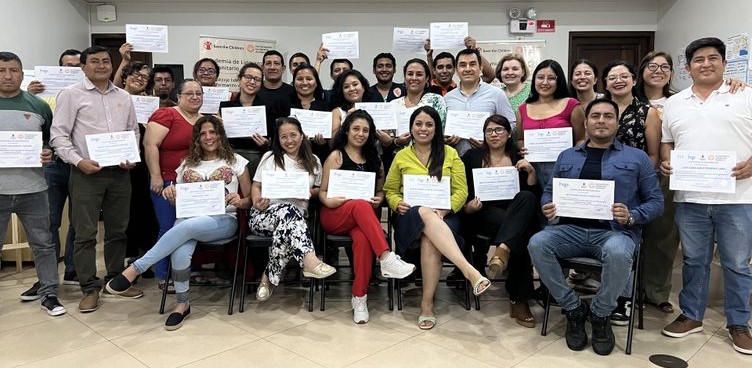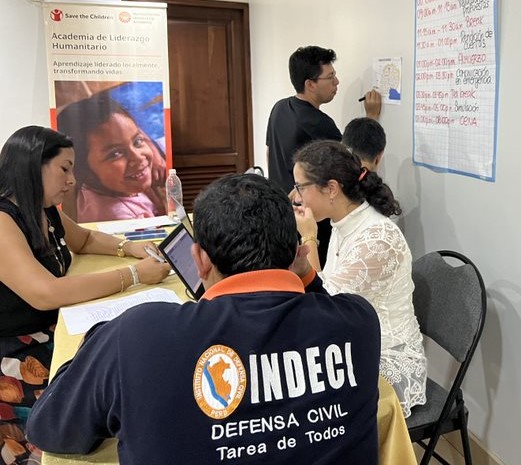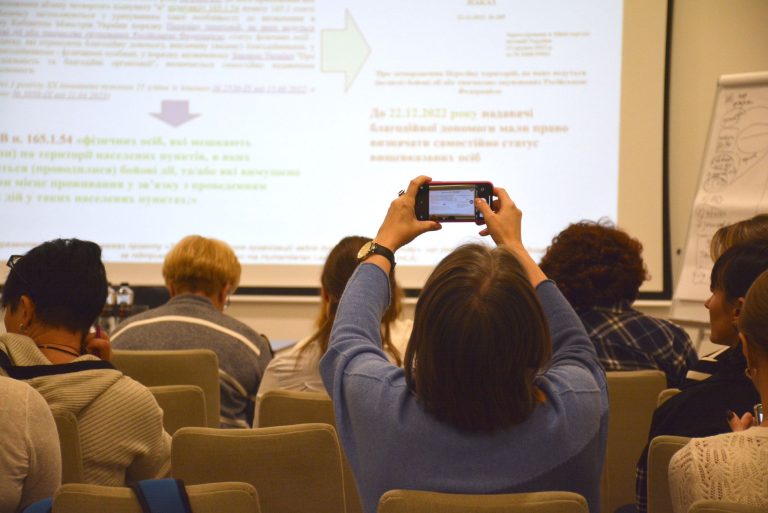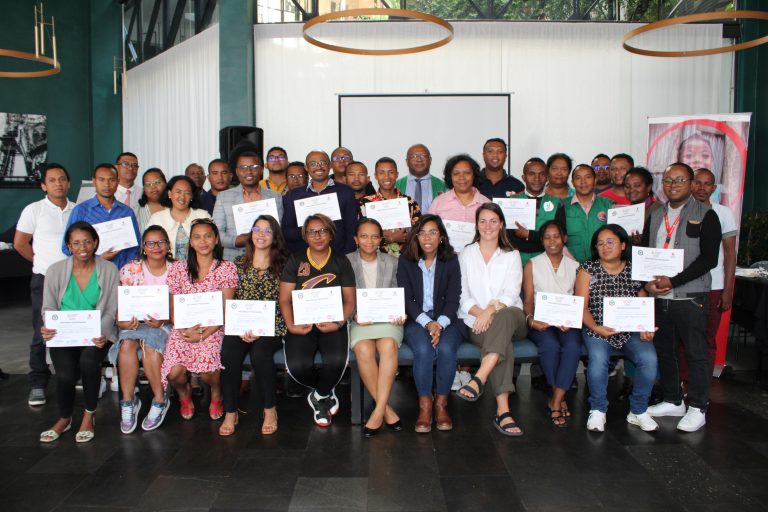From the end of 2023 until the first quarter of 2024, the Humanitarian Leadership Academy (HLA) team in Latin America and Caribbean (LAC) strengthened the capacity of 59 humanitarians from local organisations across Peru and Guatemala.
Humanitarian Operations Programme (HOP) a flagship training programme and one from the HLA’s preparedness portfolio, covers the essential elements of setting up and running a humanitarian response. HOP is designed to provide humanitarians with a platform for a successful career, allowing humanitarians to gain theoretical knowledge and practice the skills needed to respond to unique emergencies in the region. These skills and knowledge can then be shared with others.
In December 2023, the first HOP Fundamentals held in Lima, Peru was the starting point. The team built on the success of last year to reach more local organisations in and around Peru and Guatemala, the two pilot countries for this project.

Mercedes Garcia, Regional Humanitarian Capacity Building Advisor at Save the Children and HLA LAC Lead said, “It is important for us to be proactive and meet the interests and training needs of local partner organisations in our region who are the first responders to current crisis and any that may arise in the future.”
In Guatemala, twenty participants from local organisations including indigenous NGOs, local governments from different regions of the country and from Save the Children International offices received a five-day HOP Core training. HOP Core aims to strengthen knowledge, skills and behaviours to respond effectively and prepare to respond to emergencies.
Francisco Aceituno, Risk Director of the Municipality of Sacalupas, Guatemala participated in the training, he said:
“In the Humanitarian Operations Programme I learned about the types of disasters, how to assess needs and formulate project proposals. In addition, with the simulation I strengthened my knowledge about the financial component within a proposal and how this is linked to interventions. I will put it into practice in my municipality, considering the preparation to respond in the face of all risks and hazards that affect this area, such as floods caused by overflowing rivers that generate physical and material losses”.

Strengthening capacity of El Niño responders
HOP graduates advance to become trainers after a train the trainer (TtT) session as was the case in the city of Chiclayo, department of Lambayeque, Peru. Out of 9 people who completed the TtT training, five newly certified trainers delivered a HOP Core training to 20 participants more.
Fiorella Chanta, a volunteer manager at the local organization Nic Maish in Lambayeque, is one of the newly certified HOP trainers and was a facilitator in the training. She shared her experience:
“I have learned so much from this training, especially because of the topics that have been addressed, which I feel have strengthened my knowledge. To me, it was truly wonderful to witness the teamwork and cohesion among those of us who facilitated a HOP Core training right afterward completing the TtT, because together we learned that we could overcome barriers and guarantee quality training for new HOP Core participants.
I am committed to replicate this program to train specialists whose job is to prevent and prepare for emergency situations; specially because in the city of Chiclayo in Lambayeque state, we do not have a preventive and preparatory approach, and plus there are hardly any training of this type available. That is why, to me is really important to start replicating this knowledge with the members of my organisation, so that we all may be part of a multiplier effect for a better prepared region in the face of crises and emergencies.”
The new trainers were coached and supported by the Humanitarian Leadership Academy team in Latin America and Caribbean to ensure the quality and methodology of the learning process.
Representatives of notable local organisations such as the Food Bank of Peru and Descocentro, as well as government actors from the National Institute of Civil Defense and national staff of Save the Children, from Lima, Piura, Huancavelica, La Libertad and Lambayeque participated in the training. The training was led and delivered by the new facilitators from three local organisations: Nic Maish, CEDEPAS and from Save the Children Peru.
The training participants were able to reinforce their knowledge on risk prevention, preparedness and mitigation through theoretical and practical sessions; they will continue to support the ongoing El Niño response in this territory.
Silvia Uriol, National Communications Coordinator for Save the Children Peru and one of the participants in this training by newly trained facilitators shared:
“My experience as a participant of the HOP Core has been absolutely rewarding. As a group, we had quite intense days of learning, where we also had the chance to absorb the experiences of all participants from different backgrounds: from government institution staff to local NGOs, and even colleagues from different specialty areas within Save the Children.
I am leaving this space; firstly, enthusiastic about applying everything that I have learned here and transfer my knowledge into the emergency projects where I participate in favour of children within SC; and second of all, I am leaving with the commitment to share everything I have just learned to strengthen the brilliant team under my lead in Lima.”
Learn more
Related News

Working in partnership to strengthen frontline humanitarian operations and community resilience in Nepal
22nd November 2024

ISAR Ednannia’s Second Organisational Development School: Building Financial Resilience
8th November 2024

A fresh look and a first time: Education in Emergencies training in Madagascar
10th October 2024